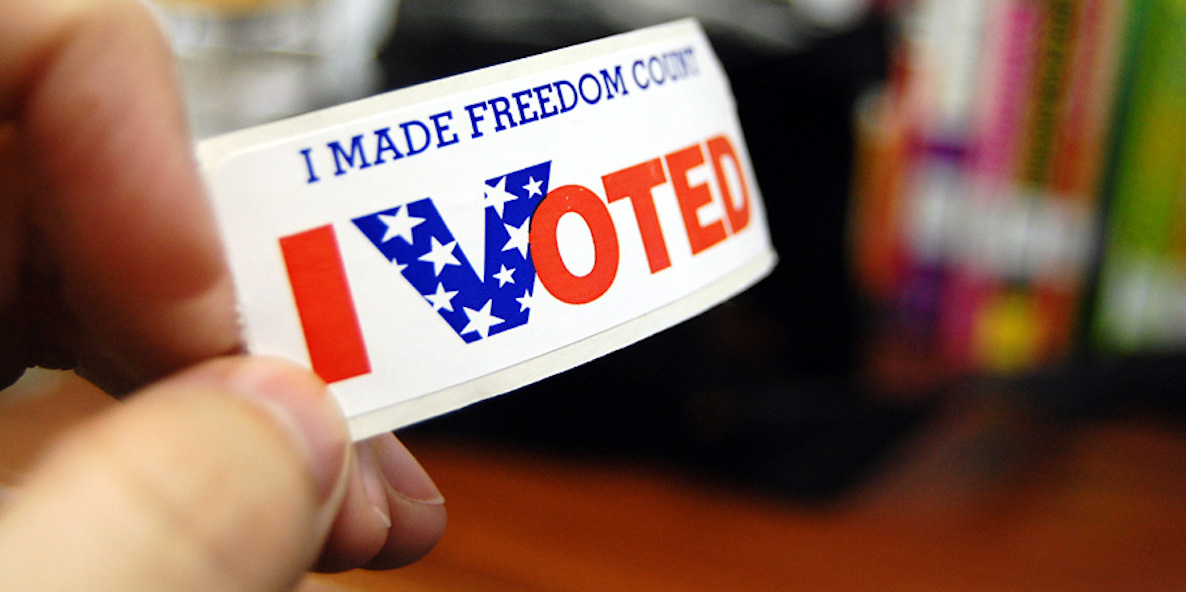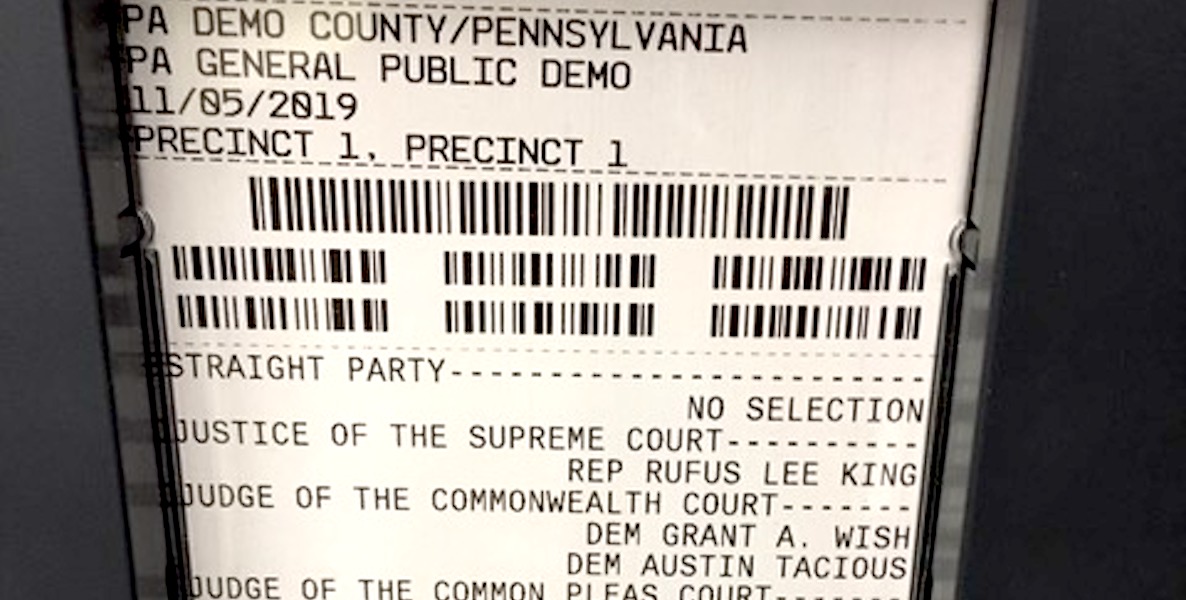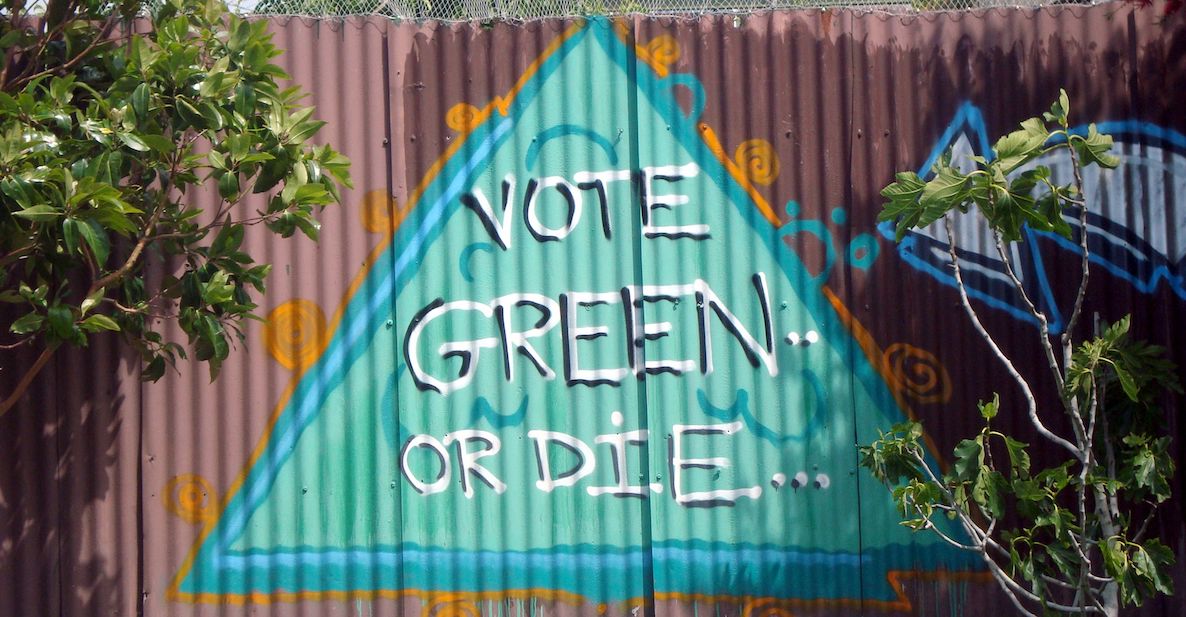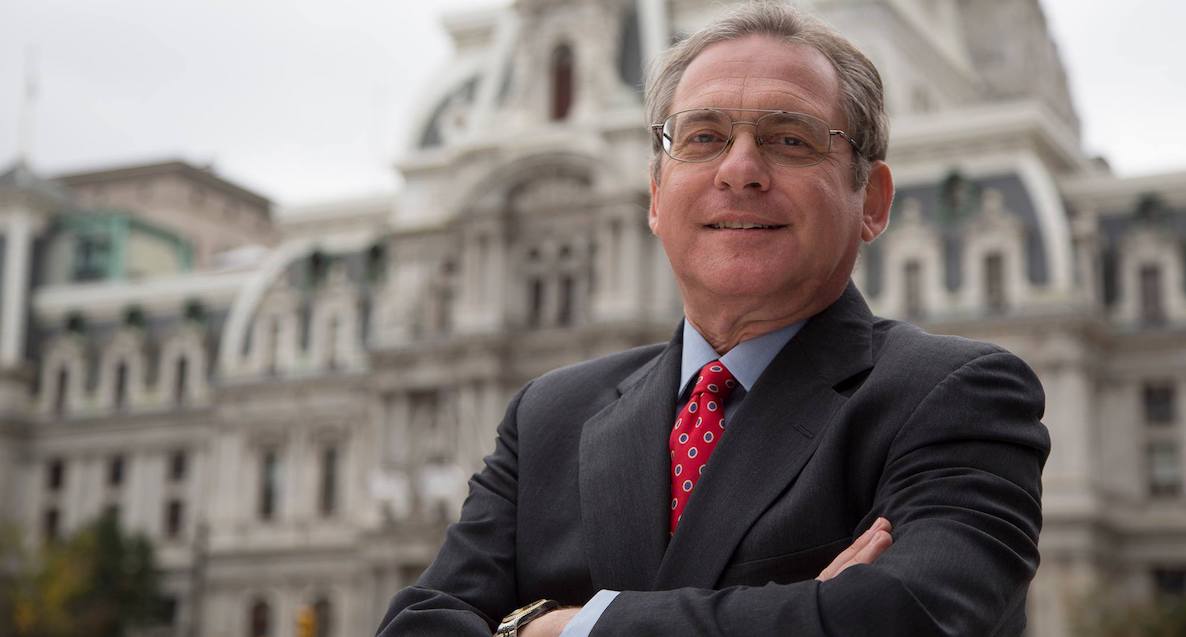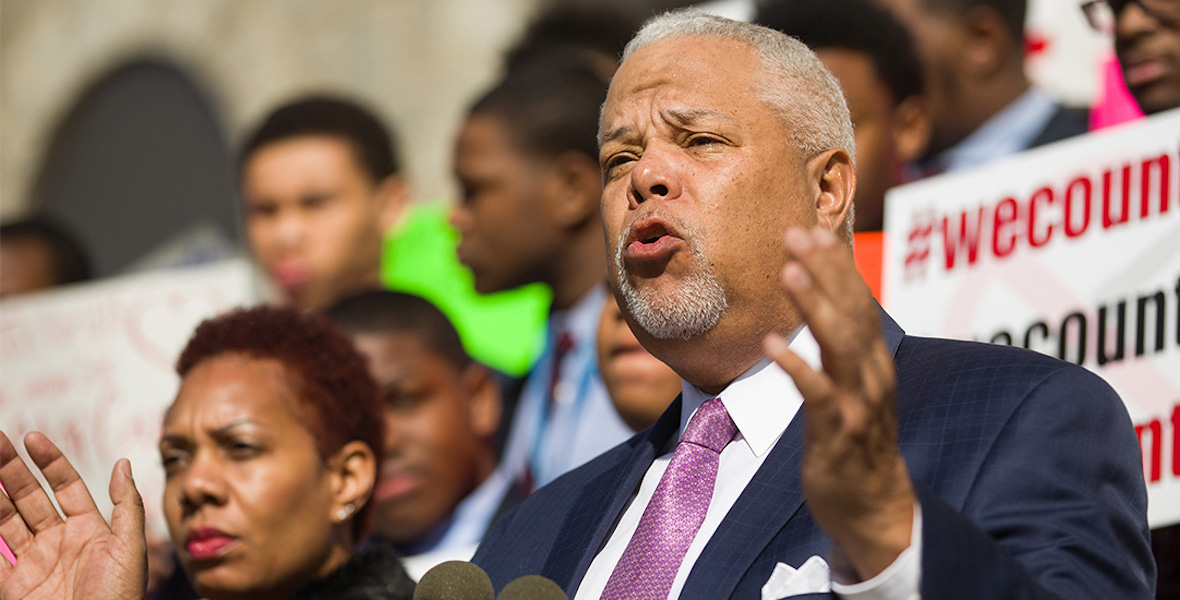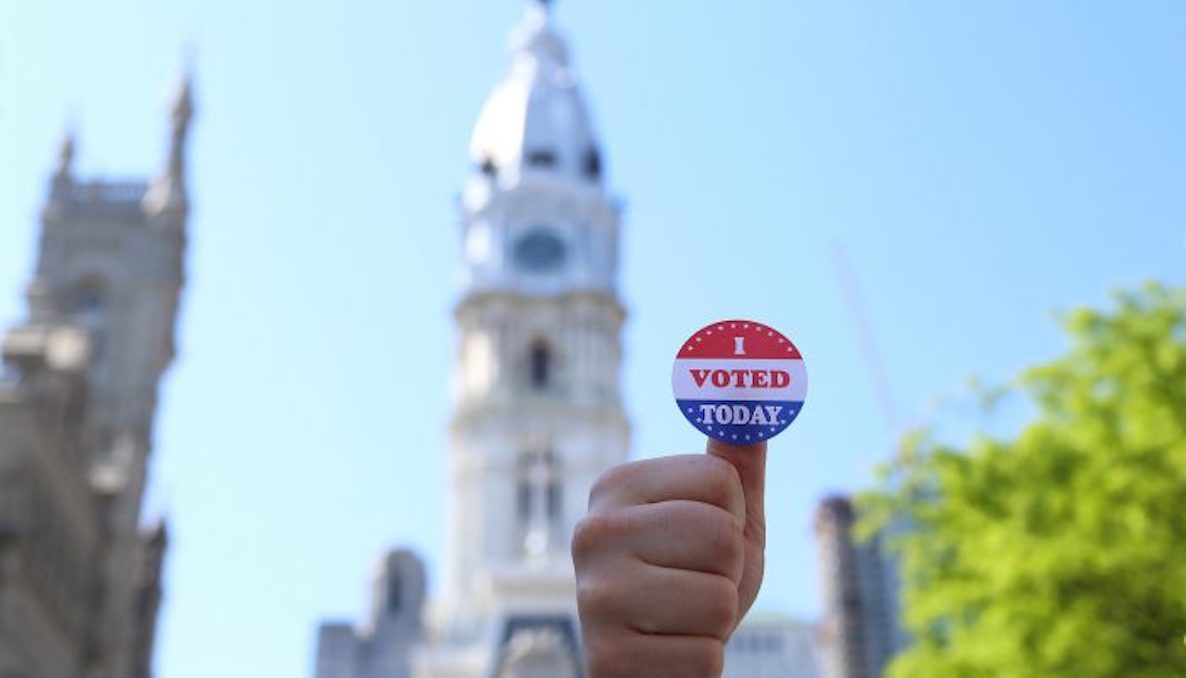You might think that, given the death spiral narrative in recent years of the newspaper industry, political endorsements in their pages might not matter much anymore. It does feel kind of atavistic, doesn’t it? Voters are inundated with messaging all day in all kinds of ways, after all, and top-down media content telling you what’s best for you just may be a condescending relic of the past. Yet, speak to those running political campaigns, and you’ll hear that endorsements do, in fact, still matter. Even in the era of dwindling readership, campaigns go out of their way to cite endorsements in TV commercials; turns out, even among non-readers, the imprimatur of a newspaper endorsement still confers credibility.
Which brings us to this season’s odd election, which culminates tomorrow at the polls. The Inquirer’s endorsements leading up to election day—particularly for Council and Mayor—raise vexing questions about the very nature of newspaper endorsements, about what purpose they ought to serve, and, in this case, about the motivations behind them.
This has a pretty old school feel to it, no? How about, I don’t know, inviting us into your process? Broadcast your interviews and your deliberations on philly.com, reality TV-style.
First, a word about the woman who directs the Inquirer’s process. Last week, in writing about the mayoral debate, I heaped praise on Sandy Shea, the Inquirer’s managing editor for opinion. Her questions were insightful and, given the responses she engendered from all candidates, revealing.
Shea takes the endorsement process very seriously, and this year that meant a ton of work. The editorial board interviewed nearly 50 candidates in-person and surveyed them by questionnaire. Full disclosure: I once worked with Sandy at The Daily News, and consider her a friend and a smart, practical policy person. That’s why I’m especially perplexed by the seeming inconsistencies in the Inquirer’s slate of endorsements this time around.
The first and perhaps most glaring oddity was that the paper did not endorse incumbent At-Large Councilman Allan Domb, raising the ire of many in political circles, including former governor and mayor Ed Rendell, who penned a letter to the editor in response. You’d have thought that Domb, elected in 2015, would have been a good government editorial board’s dream: The only member to have introduced a term limits bill; the only member to have vigorously conducted oversight of the administration’s fiscal management, (it was Domb’s questioning that exposed the missing $33 million from city accounts, many of which hadn’t been reconciled in seven years); one of the few members of Council to focus on growing the economic pie rather than simply redistributing its ever-shrinking slices.
![]()
Which gets us to the second oddity: Incumbent Councilman Derek Green was also passed over by the Inquirer’s board. Like Domb, Green, a small businessman himself, tended to be focused on growing jobs. He passed a bill establishing a Tourism Improvement District, and has pushed for hearings into how the city could utilize Social Impact Bonds to stimulate growth.
In an email to me last week, Shea explained the thinking. “In the at-large races, we saw an opportunity to make an argument for new ideas and new blood,” she wrote. “That would have been hard to do if we endorsed three incumbents out of five.”
True that, but the logic raises questions over the definition of “new blood.” Domb and Green are both in their first term, and have both advanced ideas no one else on Council has championed. Yet Shea’s board endorsed Helen Gym, who was elected right alongside Domb and Green four years ago. And the paper endorsed Katherine Gilmore Richardson, as well. While it’s true that Richardson is a first-time candidate, she was a longtime staffer to retiring councilwoman Blondell Reynolds Brown. By all accounts she’s an impressive candidate, but, as part of the inner workings of Council for over a decade, she might be more usual suspect than new blood.
The Inquirer’s endorsements leading up to election day—particularly for Council and Mayor—raise vexing questions about the very nature of newspaper endorsements, about what purpose they ought to serve, and, in this case, about the motivations behind them.
Moreover, does Shea mean to imply that the “new blood” and “new ideas” criteria, however misapplied, ought only to pertain to at-large races? Because, in the second councilmanic district, the paper stunningly endorsed “with reservations” scandal-ridden incumbent Kenyatta Johnson, who has become the face of Councilmanic Prerogative, arguably number one on the list of scourges that infect our politics. (Which is saying something.) In this, there’s a disconnect between the Inquirer’s editorial and front pages, where any number of page one stories by reporter Bill Bender have detailed Johnson’s shady land disposition deals.
Johnson’s challenger, Lauren Vidas, is credible, as the Inquirer endorsement concedes, but the paper couldn’t bring itself to support her at least in part because of her race: “…as a white candidate in a district that is only 33 percent white and where the sores of displacement due to gentrification are still raw…”
Anyone else see anything problematic here? I’m a “content of their character” over “the color of their skin” kind of guy, so this logic feels not only misguided, but also lazy. Moreover, it’s not consistently applied. If Lauren Vidas can’t serve a majority minority constituency, why can Jim Kenney? Philadelphia, after all, is only 37 percent white, and those sores of displacement extend citywide. Why give Kenney a pass on the (faulty) standard you’ve set up?
We here at The Citizen always try and look deeper than the surface, and ask: What’s really going on here? Let me advance two theories.
1). Ideology. This morning, Shea and I connected over the phone. I’d heard that she’d told Domb and others that the editorial board went for a more progressive and younger slate this time around, particularly when it came to the at-large candidates. I asked if the endorsements were intentionally more progressive.
“Yes and no,” she said. “What happened is there was a groundswell of young, highly qualified candidates who just happened to be progressives. The notion of that much energy was very exciting. As you know, these things tend to be evolutionary. Is the Board leaning more progressive? We do have a bunch of terrific young people on the Board now, who made really cogent arguments.”
Among those younger, more progressive voices are Elena Gooray, Abraham Gutman, and Erica Palan, all talented young voices. But there is a red flag to be raised here: The Inquirer rightly champions diversity, but one has to wonder how high diversity of thought is among those values. We’re already, to our detriment, a one-party town. Isn’t local democracy better served with more viewpoints on Council, and not less? Isn’t it better to have both Domb and Gym, debating their pro-growth versus redistributive philosophies?
Keep in mind that the Inquirer endorsed State Senator Tony Williams over Kenney four years ago, because of Kenney’s ties to organized labor. How prescient was that? Fast forward a few years, and many of those union influences on Kenney have been indicted.
Journalism at its best, whether on the news or op-ed pages, should arbitrate between competing sets of facts, and ought to eschew the wearing of team colors. Here’s where I feel compelled to offer my own mea culpa. I’ve been a part of many newsrooms and journalistic enterprises that, even if unwittingly, have come up short on this score. As recently as 2013, only 7 percent of journalists identified as Republican, a number that was trending downward even then. Readers don’t make the often tortured distinction us insiders make between the front page and editorial sections. When we give voice to progressivism, while denying it all the while, we contribute mightily to the predicament newspapers have found themselves in these last two decades. Readers, in my experience, don’t object to bias so much as the denial of bias.
A passage in Merchants of Truth, by former New York Times editor Jill Abramson, captures what many readers have long intuited from our pages. Abramson criticizes her former shop and The Washington Post, calling them “unmistakenly anti-Trump.” But she also describes a generational split at the Times, with many younger staffers arguing for a full-out assault on Trump’s presidency. “The more ‘woke’ staff thought that urgent times called for urgent measures; the dangers of Trump’s presidency obviated the old standards,” she writes.
We need institutions like The Inquirer to double down not on bland neutrality or ideological purity, but on political iconoclasm. These endorsements do precisely the opposite. By endorsing Helen Gym and newcomers like progressive candidates Erika Almirón and Fernando Treviño—both of whom have compelling personal stories—the Inquirer seems to endorse less debate and can instead be seen as cheerleading for the idea of Wokeadelphia, rather than serving as an inspector of it.
2). Kenney Loyalism. During the debate last week, candidate Alan Butkovitz got annoyed at Shea’s probing and said, “I know where you are on all this, Sandy. Let me answer the question my way.”
That was a reference to what Butkovitz believes is Shea’s bias: “She’s in the tank for Kenney,” he told me later.
Now, a bit of background: When I was at the Daily News, Butkovitz often complained about Shea; I once even tried to moderate a sit-down between the two. (If it ever happened, I’ve thankfully blocked it from my memory.) So this isn’t to question Shea’s motives; she’s always been an absolute pro. But it is possible that these Inquirer endorsements provide fodder for those who see pro-Kenney cheerleading on its editorial pages, which have consistently supported the soda tax and safe injection sites.
![]()
Keep in mind that the Inquirer endorsed State Senator Tony Williams over Kenney four years ago, because of Kenney’s ties to organized labor. The choice was “remarkably close,” the Inquirer wrote, “but the balance of power in City Hall isn’t so close. Because the unions backing Kenney already wield too much influence, the Inquirer’s choice for the Democratic nomination is Anthony Williams.”
How prescient was that? Fast forward a few years, and, lo and behold, many of those union influences on Kenney have been indicted. Given that, how do you justify such a flip-flop? At the very least, shouldn’t such an about-face have been acknowledged and addressed head-on?
Instead, throughout the Inquirer’s endorsements, examples jump out that could be seen as embracing Kenneyism. It wasn’t just race holding Vidas back, the endorsement of Kenyatta Johnson held, but also Vidas’ lobbying, in the private sector, against Kenney’s signature “achievement,” the soda tax.
Anyone else see anything problematic here? I’m a “content of their character” over “the color of their skin” kind of guy, so this logic feels not only misguided, but also lazy.
Then there’s the snubbing of Domb. It’s no secret that Kenney can’t stand Domb—the only Councilmember who has conducted aggressive oversight of the administration’s fiscal operations was, not coincidentally, the only Councilmember not to receive Kenney’s endorsement for reelection.
Shea would not talk about the Board’s deliberations on individual candidates, but did laugh when I asked about the notion that she’s somehow loyal to Kenney. “I can’t tell you how many times he’s called and yelled at me over positions we’ve taken,” she said. “I think he’d laugh if you asked him if I were a loyalist.”
Knowing Shea, a straight-shooter, I have no doubt that’s true. But I wonder if the times call for some fresher thinking about the purpose of an editorial board and around the transparency of its process. Don’t get me wrong; I think we need a paper of record to endorse. But, in a one party, corrupt town, we also need it to be an agent of change. Shea might argue that, by endorsing one incumbent and four new faces for at-large Council seats, she is opposing the status quo. But when the paper endorses the face of Councilmanic Prerogative at the district level, and when nearly all of its preferred candidates pray to the patron saint Alexandria Ocasio-Cortez, well, you’ve essentially doubled down on a particular type of conventional wisdom, not challenged it.
Maybe, nowadays, we need you to show your work, editorial board. After all, in a town without an opposition party, the Inquirer endorsements came down last week as if on tablets from a mountaintop. That has a pretty old school feel to it, no? How about, I don’t know, inviting us into your process? Broadcast your interviews and your deliberations on philly.com, reality TV-style. I’d love to have been a fly on the wall to hear the give and take after Kenney’s interview, or after Domb’s. The times they are a’changing, and the verdict is in on the old gatekeeper ways of talking at your audience. The spirit of sunshine laws ought to apply not just to legislative bodies.
Photo via Pixabay


